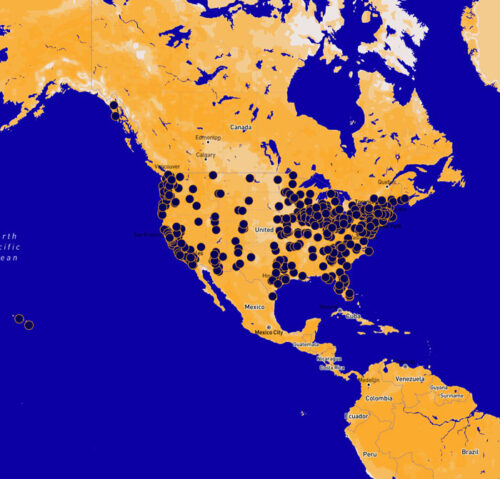The No Kings Map is Live!
Hundreds of nonviolent protests are already planned for No Kings Day on March 28, and more are being added by the hour.

Many nonprofits and progressive organizations use the term “capacity building” as a catch-all phrase to encompass all the ways an organization might increase its impact or political power over time. For example, organizations might increase capacity by adding new members, by increasing member skills and knowledge, by forming new partnerships or by implementing clear pathways to leadership succession.
Healthy Indivisible groups incorporate building capacity either by preparing for growth (building infrastructure) or actually growing (through recruitment or events) continually into all their plans and activities. People power only works with plenty of people.
The following capacity-building activities are among those that are likely to fulfill the capacity-building requirement of the Indivisible GROW! Grant.
Strengthen your group’s structure, systems and leadership development pipelines. You might use grant funds to hold meetings or trainings (ideally with other groups) to:
Create systems to recruit, welcome and onboard new members. Some groups assign separate leads for each component; others create Welcome Wagon teams to recruit and onboard, and “Member Maintenance” teams to develop relationships with and build skills of the group members.
Learn about leadership structures and leadership development.
Decide on a multi-group mission. Tip: Open each meeting by reading your mission statement out loud. This creates community and will help your group grow organically.
Develop an online, living document of your goals, mission statement, and norms
Review your group’s strength every 6 to 9 months. Use the living document mentioned above, or incorporate best practices from this Group Health Check-up
Hire a conflict management expert to provide a one-time training (note any speaker hired must be able to accept a debit card payment for services performed, and there can’t be an ongoing legal relationship)
Improve how you report and measure the outcome of your work
Hold trainings on recruitment and retention
Create a recruitment strategy
Create a communication strategy–on what platform can group members consistently find your calls to action and alerts?
Build out teams and report-back systems for your coalition–for example, each group should assign members or create teams to:
Attend statewide and national calls
Meet and communicate regularly with your Indivisible staff Organizer
Liaise with existing statewide teams and explore multi-group collaboration
Communicate calls to action
Accurately track your membership data (Join Every Action to use Indivisible’s free contact-management system.)
Set up a Distributed Fundraising account
Incorporate skill and knowledge-building regularly into meetings
Tip: Establish regular meetings, same time and place, in person, with consistent agendas
Create surveys to gauge member commitment and the extent to which your group has become a community for civic action.
Have a process for signing onto statewide letters
Build and implement a texting tree for your group to drive calls to electeds
Create a Letters to the Editor team
Have fun, social events for your group members to strengthen bonds and recruit new members.
Your grant may also fund some of the vendor costs involved in capacity-building system development, such as:
The platform on which you send weekly e-newsletters to your full email list to share information about group activities, events, meeting minutes and upcoming opportunities for action.
Creating a group website. This may be covered by a GROW grant if you are using services purchased from a vendor, such as a domain, hosting or pre-packaged sites from places like Squarespace or Wix.
Printing costs for those cards your group members carry with them everywhere to hand out to potential members
Use your GROW Grant to pay for room rentals, printed materials, banners, vendors, tables, event fees and other costs to help your coalition grow. Examples:
Recruitment events or drives, like trivia parties, debate watch parties, community service projects
Recruitment at other events like marches or protests
Costs involved in Increasing your social media presence (live Twitter parties with real people)
Trainings on racial equity and inclusion
Speaker fees for high-profile events to attract new members
Meeting space to build regional and statewide coalitions with other Indivisible groups and your Indivisible staff Organizer
Costs of events that build partnerships with other progressive groups
Costs of events that help others in your community
Costs of community forums about an issue important to your group at which you recruit new members
Costs of materials and meeting space at which you get specific in your electoral goals. Tip: With your group, write a simple game plan with a timeline that covers the present through a month after the next election your group decides to support (this can be local or national). Work back from your end date, and include, for each month, two agreed-upon actions. Example plan:
One month after election: two accountability actions
One month before election: two GOTV actions
Two months before election: two turnout actions
Three months before election: two turnout actions
Four months before election: two recruitment actions
Hundreds of nonviolent protests are already planned for No Kings Day on March 28, and more are being added by the hour.
